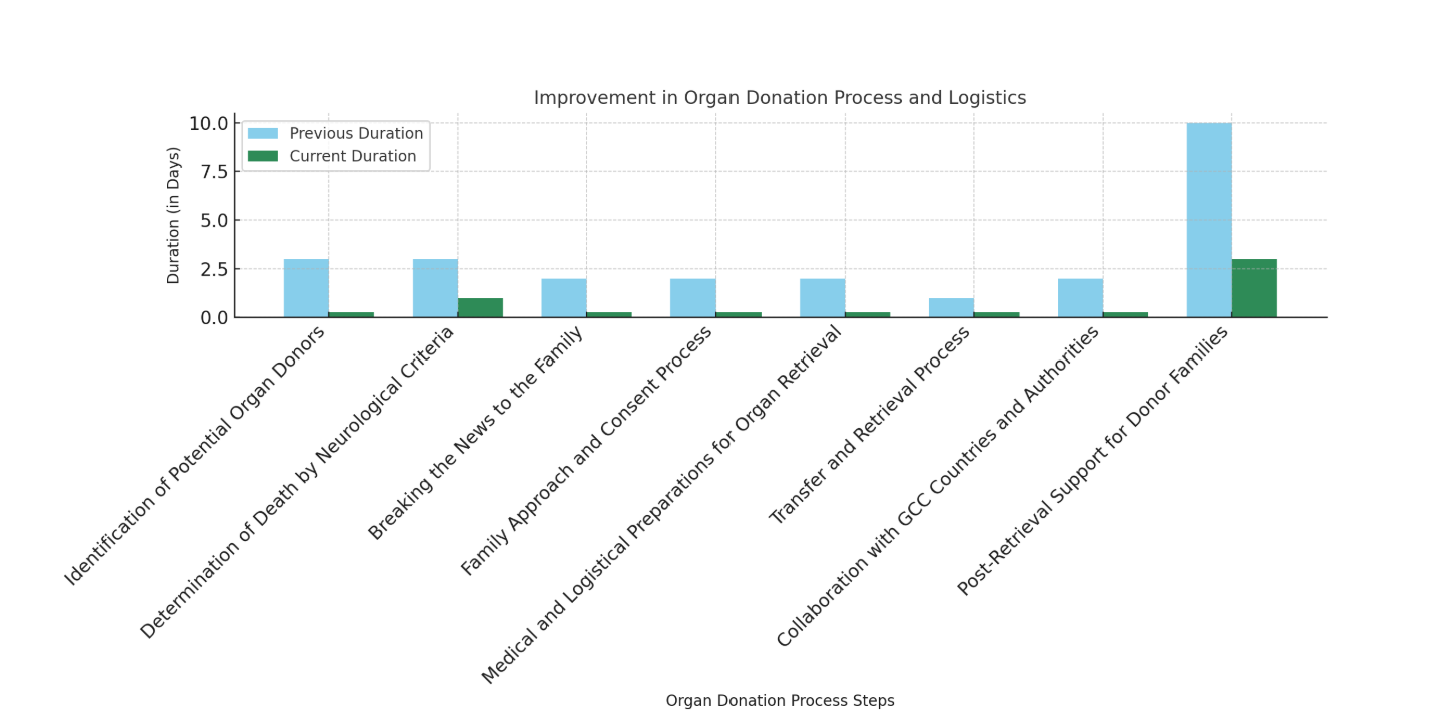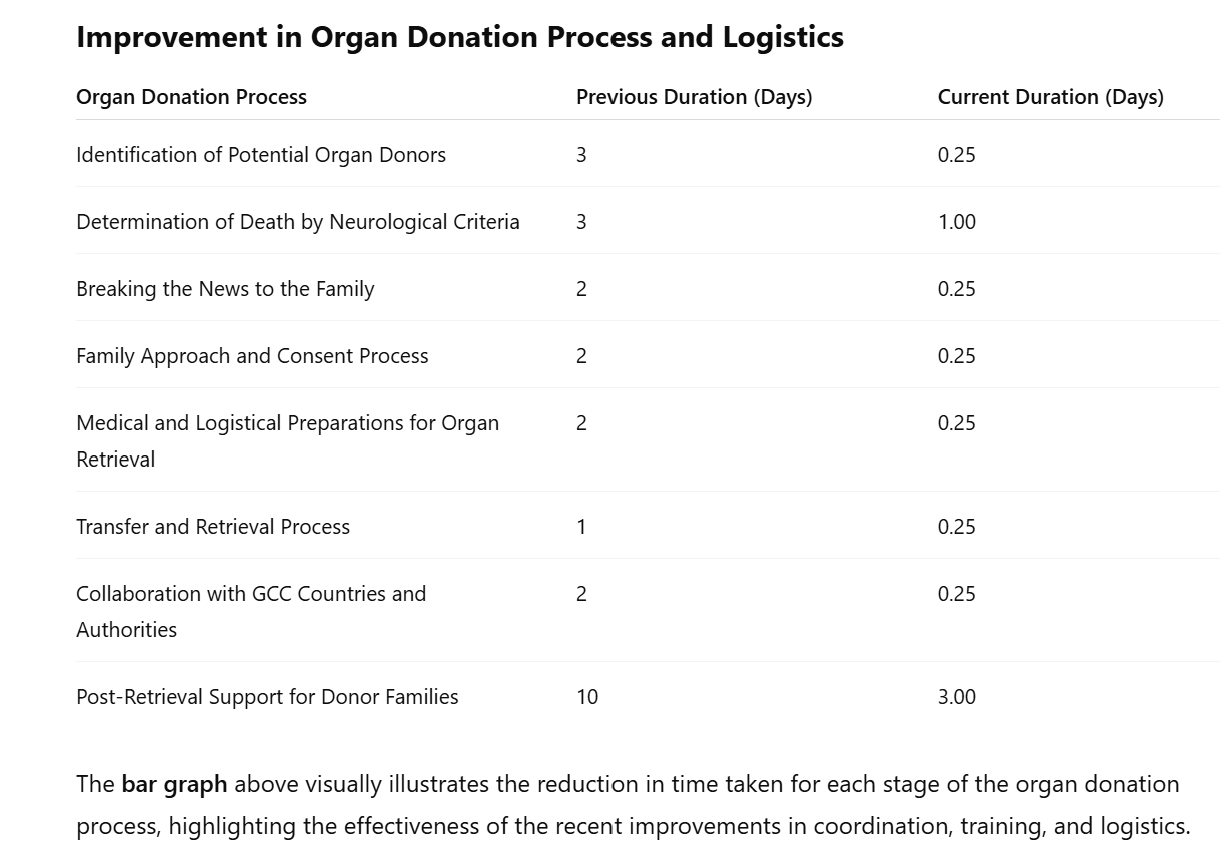Strategic advancements in organ donation within the UAE - A model of ethical governance, operational efficiency, and multisectoral collaboration- organ donation experience in the UAE: A comprehensive overview
Hicham Aboualloul1, Maria Gomez1, Reginaldo Carlos Boni1, Nageswar Bandla1, Ayesha Ali Alfalahi5, Zeyad Alrais2, Zeyad Saeed3, Nujood Alkhloofi4, Ammar Abdelhadi3, Muneeba Moin2, Hanan Ali Mubarak Obaid5, Ali Al Obaidli1.
1National Center Of Organ Donation, UAE Ministry of Health and Prevention, Dubai, United Arab Emirates; 2Rashid Hospital, Dubai Health, Dubai, United Arab Emirates; 3Mediclinic, Mediclinic Hospitals, Dubai, United Arab Emirates; 4Head Quarter, Dubai Health, Dubai, United Arab Emirates; 5Regulations, Dubai Health Authority, Dubai, United Arab Emirates
The National Center Of Organ Donation.
Introduction: Organ donation in the UAE has evolved into a structured, ethically governed, and collaborative system designed to save lives. Through a national framework led by the National Center for Organ Donation, the country has addressed key operational, cultural, and logistical challenges, making significant strides in both domestic and regional transplantation efforts.
Method: Organ donation in the UAE involves a multilayered process starting from early donor identification in hospitals, supported by staff training and automated alert systems. Medical teams conduct thorough evaluations to determine eligibility, followed by confirmation of brain death using standardized neurological assessments. Family engagement is a critical component, supported by culturally sensitive communication, psychological counseling, and legally documented consent—either in person or virtually. Once consent is secured, donor maintenance protocols ensure organ viability through specialized critical care. Coordinated logistics manage transfers to transplant centers, with seamless collaboration between hospitals, border authorities, and GCC partners. Cross-border sharing with countries like Saudi Arabia and Kuwait is facilitated by charter flights, embassy coordination, and customs clearance.

Results: The UAE’s program has demonstrated success in integrating ethical standards with clinical excellence. Hospitals now report higher rates of timely donor identification. Family consent rates have improved through tailored communication strategies, while logistical efficiency has minimized delays in retrieval and transport. Partnerships across the GCC have expanded recipient access. Post-donation, families receive continued emotional, logistical, and commemorative support. Donor family outreach programs have strengthened public trust and recognition of the system’s humanitarian impact.

Conclusion: The UAE presents a comprehensive, ethically sound model of organ donation built on operational rigor and multisectoral collaboration. Despite challenges, continuous improvements in training, logistics, and family engagement underscore the nation’s commitment to saving lives. The UAE’s framework offers a replicable model for regional and global organ donation systems.
We would like to express our sincere gratitude to the National Center for Organ Donation, UAE Ministry of Health and Prevention, special thanks for OPO team and all participating hospitals for their invaluable support and cooperation. Special thanks to the healthcare professionals and donor family coordinators whose dedication made this study possible. We also acknowledge the families of organ donors for their generosity and trust. Finally, we appreciate the guidance and encouragement from our colleagues and mentors throughout this work.
[1] Organ Donation
[2] Brain Death
[3] Consent Process
[4] Transplantation
[5] Donor Identification
[6] Ethical Governance
[7] Multisectoral Collaboration
[8] Donor Management
[9] Family Support
[10] Organ Retrieval